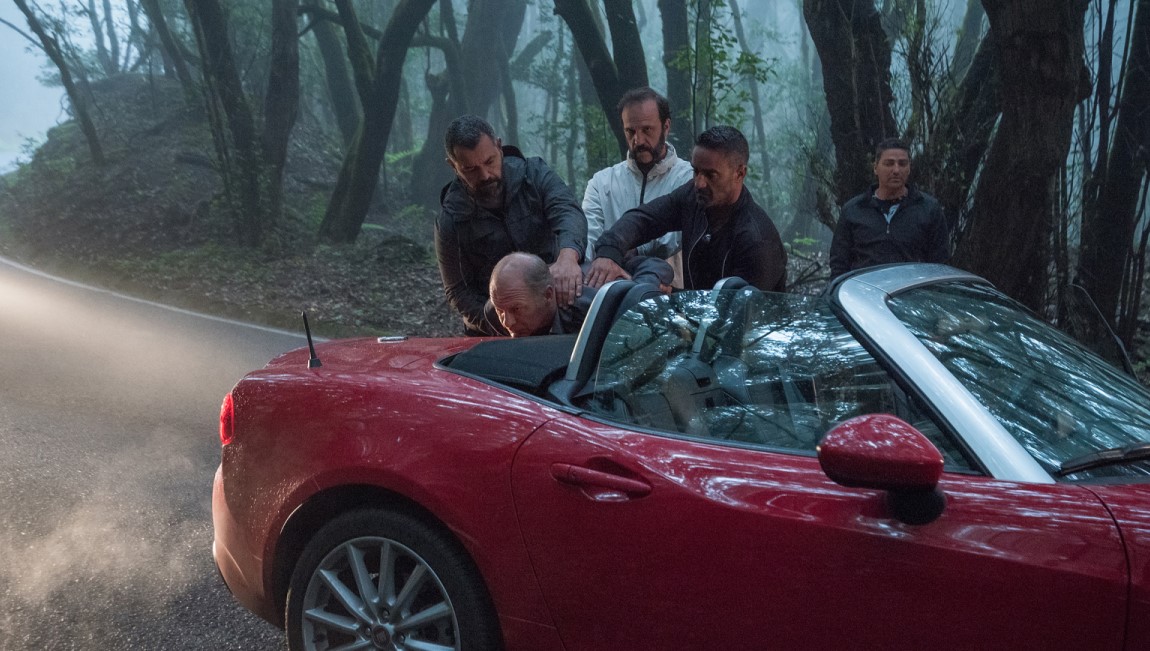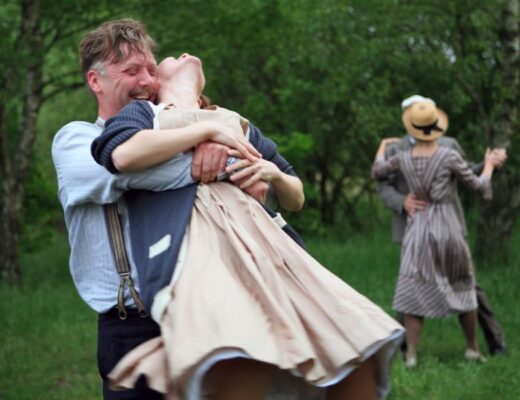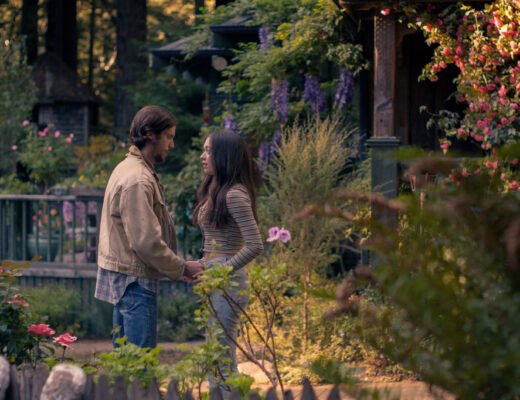After five uninterrupted minutes of a camera looking out a train window at the passing greenery — we know it’s a camera looking and not just a person, because we can see the reflection of the camera in the reflection of the window opposite the one we’re looking out of — an intertitle somewhat helpfully informs us that what follows is not an adaptation of Bertolt Brecht’s The Good Person of Szechwan, and that though there are lines from that play in the film, they’re the only ones that are “supposed to be fictitious.” The emphasis there is mine; this being a classically slow cinema film, any emphasis one finds is, by design, one’s own.
What little plot there is in Sabrina Zhao’s The Good Woman of Sichuan revolves around an actress who has traveled to the city of Leshan, about two hours south of Chengdu and three hours west of Chongqing, in the province of Sichuan. She’s there to prep for a production of the Brecht play, which she says the director wants to make abstract and fluid, with the performers finding “a way of expressing and performing that only belongs to each of (them).” What seems to be at play in the film is a chronicle of her attempting to figure what exactly that means, though festival screening notes suggest something more dramatic: “By accident, she loses control of the camera, and drifts into a polyrhythmic experience of stasis.”
Regardless, the film is undeniably comprised of often beautifully composed 4:3 frames, long takes without editing or camera movement (with one exception) or apparent meaning or point of view. It seems the actress’s process involves taking in all the mundane details of life, the grass and the rain, jungle gym equipment and a night by the river, a hair salon and chicken-related wedding games, and, above all, that most essential element of the creative process: sleeping. The images aren’t showy — the best of which are a shot of a green riverside where the reflection on the water makes it look like the river is dissolving into a gray blankness, and an early shot of what appears to be just a pile of clothes but turns out to contain a sleeping person and, when revisited later, a cat, which reminds of a similar shot in Hou Hsiao-hsien’s Goodbye South, Goodbye. Like a great performance, these images aren’t obvious in their construction, and as such, there’s a very present truth to them.
Published as part of Berlin Film Festival 2021 — Dispatch 6.







